Home » Jazz Articles » Interview » Loose Tubes: Tomorrow Night is Your Last Chance Ever
Loose Tubes: Tomorrow Night is Your Last Chance Ever
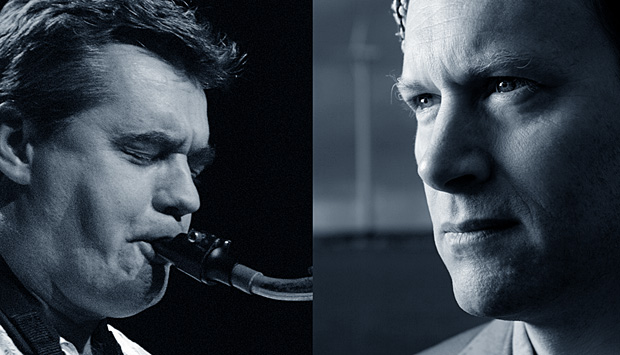
We had a rule that any decision could be vetoed by one person, and it could be a nightmare, but a very beautiful nightmare.
Two of the most influential and successful Loose Tubes members—keyboard player and composer Django Bates (pictured above right) and saxophonist Mark Lockheart (pictured above left)—spoke about the band and its legacy in separate interviews from their respective London homes. Both men have fond memories of their days in this extraordinary ensemble. While both musicians have gone on to award-winning careers—Bates won the 1997 Jazzpar Prize in Denmark, while Lockheart was Jazz Musician of the Year at the 2010 British Parliamentary Jazz Awards—they have continued to work regularly with other ex-members of Loose Tubes, maintaining links that now go back almost 30 years.
Loose Tubes, formed in London in 1983, was the brainchild of composer and bandleader Graham Collier. Before it split in 1990, it released three albums, toured extensively and played more television shows than most current jazz bands can dream of. Despite this activity, Loose Tubes is not a band that left much in the way of a visual record: there are few photographs of the band in performance; an online search for band videos was, at the time of the interviews, fruitless, and none of the band's three studio albums are available on CD. This lack of any sort of Loose Tubes archive is surprising, given the band's high profile, but the advent of Dancing On Frith Street may signal a change on the way.
The Birth of a Band
Bates mentions Collier's role in the band's genesis immediately: "For me, it all began when I got a call from Graham Collier, a jazz composer from a generation older than me, who I knew from his various bands with people like Harry Beckett and Alan Skidmore. He called me out of the blue, told me he was setting up a big workshop band, and asked if I was interested in coming along to play the piano. And I said, 'No.'" Bates laughs at the memory, but his initial response was based on experience: "All my experiences of playing in big bands had been quite unrewarding. But he insisted that this was something different compositionally and that I should come along."
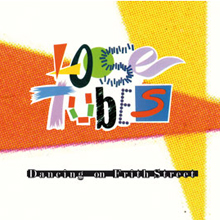 Bates relented and joined the band, realizing at the first meeting that there was huge potential in the ensemble. He's honest in his appraisal of his change of heart: "Selfishly, I saw this huge potential as a writing palette where I could bring new compositions and try them out. And that's what I did: the next week I turned up with a piece, I think it was 'Eden Express,' and it took things in a different direction. From that point on it became our band, something with a real personal character."
Bates relented and joined the band, realizing at the first meeting that there was huge potential in the ensemble. He's honest in his appraisal of his change of heart: "Selfishly, I saw this huge potential as a writing palette where I could bring new compositions and try them out. And that's what I did: the next week I turned up with a piece, I think it was 'Eden Express,' and it took things in a different direction. From that point on it became our band, something with a real personal character." Lockheart was another one of the first members of Loose Tubes, having also been approached by Collier, and shares Bates' memories of those early weeks: "I already knew Graham," says Lockheart, "and he asked me to come along and play. The first lineup all knew each other in some way. I was playing with (bassist) Steve Berry and (guitarist) John Parricelli in a quartet called Let's Eat. I'd played with Django a bit as well, in a band called The Humans, which eventually became Human Chain. So there were all these little bands within a band, as it were. We started off with Graham's compositions. Then after a couple of weeks, Django brought in a couple—including 'Yellow Hill' (on Dancing On Frith Street) and 'Eden Express,' I think."
The band's name emerged from Collier's administrator, Colin Lazarrini. As Bates recalls "He became the band administrator... and decided we needed a name. Some of the suggestions related to how we could get funding; some were pretty corny, like 'Top Score,' reflecting the 20 people in the band. Then someone, possibly Colin, suggested Loose Tubes: 'tubes' because there was so much brass in the band, and 'loose' because of the band's approach ... a studied looseness, you could say." The name stuck, but Bates now admits, "I never really liked it."
The band's name helped to indicate its sense of fun, at a time when much of the scene was taking the music rather too seriously. The band's organizational structure also marked it out as distinct from the usual big band, for Loose Tubes was never formally under the leadership of a single individual. Indeed, the band is often referred to as democratic, and even anarchic. "Colin," says Bates, "was committed to the idea of the band as a democracy, and it really was completely democratic. We would rehearse every Monday, which we did almost throughout the whole life of the band, and decisions would be discussed and voted on at great length. We had a rule that any decision could be vetoed by one person—I don't quite know how that happened—and it could be a nightmare, but a very beautiful nightmare. It was so amazing to have these conversations, but sometimes the results weren't so great because decisions would get watered down."
Even decisions about set lists could take on epic proportions. As Bates recalls, "Set lists are a crucial part of forming a gig: some people were good at it and some weren't, but everyone had to have their go. So you could do a gig that was flawed from the very beginning." As Lockheart remembers, "Some people thought of Django as the leader— his writing stood out—but it was always democratic, as regards deciding what tunes to put on an album or to play at a gig. We would have terribly long band meetings, voting on everything, and by the end there was no way of making difficult decisions."
The band lasted for over seven years, with relatively few changes of personnel for a band of that size: both Bates and Lockheart (pictured right) were still members at the end—"the bitter end," as Lockheart calls it.
Gigs, Radio and TV
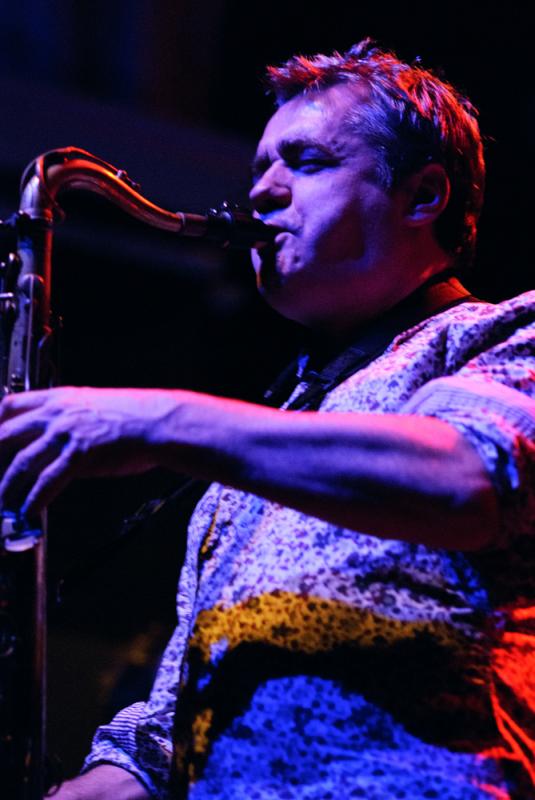 Despite its popularity, surely a band of that size was economically a bit of a non- starter? "Pretty much," responds Bates, "although when I worked out the royalty pool for Dancing On Frith Street so that everybody who was in the band would be rewarded, even if they weren't on the recording, I was surprised how few people were in the band and how many were in it for the whole of its life." The band wasn't a full-time job for its members, who in many cases had high-profile roles in other groups. Both Bates and saxophonist Iain Ballamy, for example, were in Bill Bruford's Earthworks. "It was quite difficult at times," Bates remembers. "There would be a Loose Tubes gig at a festival somewhere, and there would also be the chance to tour Germany or America with Earthworks. We were too young and naive to work out how to deal with that, and some quite difficult choices were made."
Despite its popularity, surely a band of that size was economically a bit of a non- starter? "Pretty much," responds Bates, "although when I worked out the royalty pool for Dancing On Frith Street so that everybody who was in the band would be rewarded, even if they weren't on the recording, I was surprised how few people were in the band and how many were in it for the whole of its life." The band wasn't a full-time job for its members, who in many cases had high-profile roles in other groups. Both Bates and saxophonist Iain Ballamy, for example, were in Bill Bruford's Earthworks. "It was quite difficult at times," Bates remembers. "There would be a Loose Tubes gig at a festival somewhere, and there would also be the chance to tour Germany or America with Earthworks. We were too young and naive to work out how to deal with that, and some quite difficult choices were made." Loose Tubes worked extensively, despite the need to make choices, and for a jazz group it did an appreciable number of television broadcasts including top pop music shows such as Channel 4's The Tube. "We were on the same week as Sting," remembers Lockheart. "We played three tunes. We were in the foyer of the building, and Sting was in the main auditorium." The band was always happy to take opportunities as they arose, an approach that Bates thinks is also due to its lack of pretention: "We were never precious about where we'd be seen. ... We made sure promoters knew we were happy to do our thing in any situation. There was also some luck involved; we arrived at a time when there was space for a big ensemble to do that, and we had the power of our numbers."
The band also appeared on a long-forgotten daytime national television show called Mavis. Lockheart's mother still has a recording of the show, and others: "My mum's got four or five TV things—The Tube, Mavis, and a couple of others. There's about five or six different TV things altogether, including Wogan (at the time, one of the most popular national television shows in Britain)."
The band's willingness to take opportunities led to the incident that gives its name to the live album, as Bates recalls: "We arranged to meet outside Ronnie Scott's club (on Frith Street) at about 7 o'clock. Everyone arrived outside, and we were so excited to be there that we took out our instruments and started playing on the street. Soho being the sort of village community type place it is, there was a real buzz of excitement about this—the band playing on the street as the audience went in to the gig."
 Both Bates and Lockheart have their own ideas about Loose Tubes' longer-term legacy, on each of them as players as well as on the wider jazz scene. Bates is happy to discuss the wider scene: "One example is the F-ire Collective. Barak Schmool, a major part of it, always cites Loose Tubes as an influence." As for its influence on his own development, Bates says emphatically that it was "very big." He adds, "After Loose Tubes ended I quickly started a new band, but it wasn't democratic. It was my band. I called it Delightful Precipice. We had a great time before things changed. Large groups have always been part of my life since Loose Tubes ... but I did drop some of the Loose Tubes things that I saw as a hindrance, like having four trombones. I always saw that as like having four front doors on your house."
Both Bates and Lockheart have their own ideas about Loose Tubes' longer-term legacy, on each of them as players as well as on the wider jazz scene. Bates is happy to discuss the wider scene: "One example is the F-ire Collective. Barak Schmool, a major part of it, always cites Loose Tubes as an influence." As for its influence on his own development, Bates says emphatically that it was "very big." He adds, "After Loose Tubes ended I quickly started a new band, but it wasn't democratic. It was my band. I called it Delightful Precipice. We had a great time before things changed. Large groups have always been part of my life since Loose Tubes ... but I did drop some of the Loose Tubes things that I saw as a hindrance, like having four trombones. I always saw that as like having four front doors on your house." There's another very personal impact that Bates acknowledges: "I was very introverted before Loose Tubes—really focused on my music and what was going on inside my head. Loose Tubes dragged out that more extrovert side. It also taught me that I could take this music much further than I had ever dreamed."
Lockheart also speaks fondly of the Loose Tubes legacy: "For me, it was amazing. I came pretty much straight out of Trinity College of Music, and I was in Loose Tubes, a band that was getting amazing reviews and making incredible music. I think it had an enormous influence on all of its members—all the people who went on to do their own thing. It was creatively important to us and also provided a platform from which we could launch our own projects. It's a shame it wasn't documented—the records aren't even available now. No one seems to know who has the masters." One of the highlights of Dancing On Frith Street is Lockheart's saxophone solos, but not according to the man himself: "I'm really pleased that Django has released the album. I think the band sounds great, but personally I hate my playing from that period. I see myself as a bit of a late developer, and so I really can't listen to my playing from that time."
Lockheart's view of his playing is surprising, not only because his work on the album sounds so strong, but also because the horn section as a unit sounds so powerful and so timeless. By contrast, some of Bates' keyboards and Paricelli's guitar playing have much more of an '80s sound. "Yes, those sounds are like that," agrees Lockheart. "That's the only thing that dates that music, in a way. It's a problem with electronic instruments—you can almost date the music by those sounds. It's a bit like Weather Report. But the compositions still sound fresh to me."
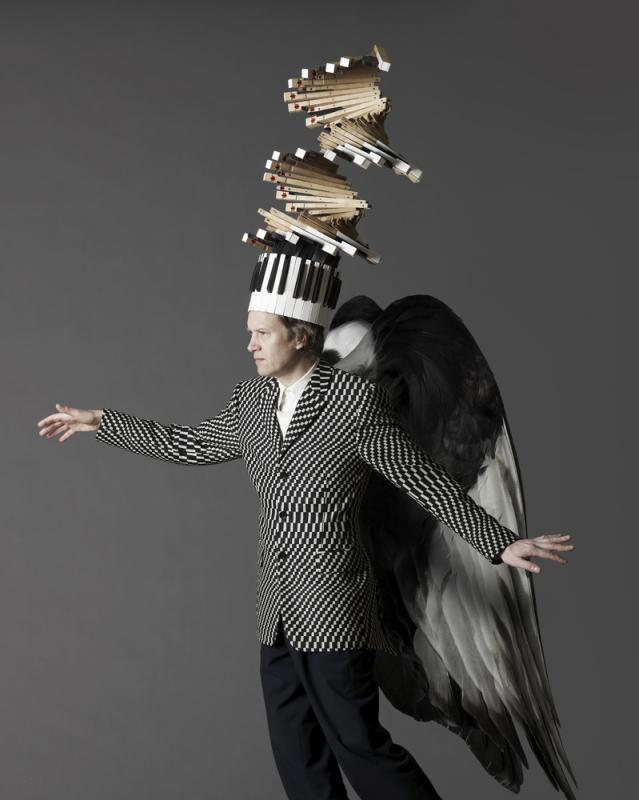 Bates (pictured right) is also one of the few British jazz musicians, along with players such as pianist Neil Cowley and the members of Led Bib, to cultivate a strong visual image. Was this, too, a legacy of his time in Loose Tubes? Bates agrees that it was, "But it wasn't that carefully considered." He continues, "The question of what the band should wear came up before the first gig. The more traditional faction wanted us all to wear the same. Then someone said it would be better to wear things that reflected our individual characters. People pounced on that and took it to the extreme."
Bates (pictured right) is also one of the few British jazz musicians, along with players such as pianist Neil Cowley and the members of Led Bib, to cultivate a strong visual image. Was this, too, a legacy of his time in Loose Tubes? Bates agrees that it was, "But it wasn't that carefully considered." He continues, "The question of what the band should wear came up before the first gig. The more traditional faction wanted us all to wear the same. Then someone said it would be better to wear things that reflected our individual characters. People pounced on that and took it to the extreme." The band's image and emphasis on fun and spontaneity also arose from a fondness for '60s British humor: Monty Python's Flying Circus and the Bonzo Dog Doo Dah Band were influences. Bates was a fan of both: "I had an early Bonzos record, and I'm sure the influence crept in there. People like (flautist) Eddie Parker were always celebrating absurd literature and crazy thinking, and we'd all grown up watching Monty Python."
"When we played in Canada," Bates continues, "we played in a field behind a big hotel. The hotel had a pool and a diving board. We were playing a huge chord and John Eacott, the trumpet player, ran through the audience and climbed up to the top of the diving board and dived in. As he hit the water, we gave the final 'pow' hit to the chord—just a spontaneous desire to do something theatrical."
Dancing On Frith Street
The sound quality on Dancing On Frith Street is exceptionally good for a live recording, and the atmosphere at the three gigs was clearly buzzing, yet the album took 20 years to appear. Its genesis was by no means a simple one, but Bates takes a positive view. "At least waiting that long makes it a really exciting event," says Bates, laughing. "We played those three gigs at Ronnie Scott's knowing that it was the end of the band—although we did play one final gig in Spain, which felt really weird. I took rough mixes of the performances home on cassettes and listened to them but wasn't sure what to do next. The band had finished, some people were grieving, and I guess some people were pretty pissed off about it."
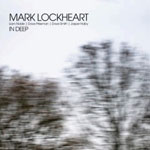 Bates got no further with those rough mixes. "I didn't really think about them much. It was hard to record a live gig, and I didn't really have any great expectations. Then I got a call telling me these tapes were knocking around: they were in a cupboard in (bass trombonist) Ashley Slater's old apartment. The girl who was living there hunted round until she found these reels of tape. I took them to Konk (the studio owned by The Kinks' Ray Davies), put them on the machine, and all the oxide coating started to fall off. Someone explained that we had to bake the tapes to stop this, because those old tapes used a water-based glue. We managed to do that, then went back. And as soon as the first track came crashing out of the speaker it was a real jaw-dropping moment, and from that moment on it was clear that this music had to come out."
Bates got no further with those rough mixes. "I didn't really think about them much. It was hard to record a live gig, and I didn't really have any great expectations. Then I got a call telling me these tapes were knocking around: they were in a cupboard in (bass trombonist) Ashley Slater's old apartment. The girl who was living there hunted round until she found these reels of tape. I took them to Konk (the studio owned by The Kinks' Ray Davies), put them on the machine, and all the oxide coating started to fall off. Someone explained that we had to bake the tapes to stop this, because those old tapes used a water-based glue. We managed to do that, then went back. And as soon as the first track came crashing out of the speaker it was a real jaw-dropping moment, and from that moment on it was clear that this music had to come out." The production process took some time, even after the tapes had been saved, as Bates explains. "It took another two years of working out how to deal with the technological change, the logistics. Then it took some excellent mastering and lots of other work to get it ready for release. ... I was aware of the 20th anniversary and also of my 50th birthday looming, and I started to think, 'Oh, wow—for once in my life things are actually going to coincide as planned.'"
Life After Loose Tubes
In 2010, Bates released Belovèd Bird, his idiosyncratic tribute to Charlie Parker. The album, featuring Bates with bassist Petter Eldh and drummer Peter Bruun, is a real contrast to Dancing On Frith Street and features one of the smallest lineups Bates has worked with. "I agree. It is an extreme contrast with Loose Tubes. To put two such different things out in the same year raises interesting questions, and they feed off each other—they create interest by being so different. But I do want to say that I don't consider Dancing On Frith Street to be my album."
Bates' album strips down Parker's arrangements and, of course, dispenses totally with the saxophone. Although the melody lines might remain, Bates' arrangements are at times quite radical re-workings of the tunes: "I was born at home and I suspect that Parker was played on the day of my birth. ... The tunes on the album are the ones that had the strongest effect on me."
Belovèd Bird took around five years between Bates' original idea for the project and the album's release—not quite on a par with Dancing On Frith Street, but still a pretty long time. For Bates, this has its advantages: "I agree with you that it's a very long time between the album's origins and its actual recording. But the longer you leave it, the more of a surprise it becomes. In fact, it's an ongoing project, not just a single recording." Interestingly, Bates reveals that the project is not limited to Parker's work: "The band is actually called Belovèd, and the album is called Belovèd Bird. Everyone thinks that the band is called Belovèd Bird and that it only plays Parker. ... 'Belovèd' actually refers to the idea of the piano trio, which I think is a constellation which is beloved. Of course, Bird is also beloved."
 Since 2005, Bates has been the Professor of Rhythmic Music at Denmark's Rhythmic Music Conservatory in Copenhagen. It's a position he clearly enjoys and which gives him freedom to pursue other musical projects: it also enabled him to form Beloved Bird. "I met Peter Bruun and Petter Eldh through the Conservatory. Petter Eldh was a student of mine. He was in the big band, StoRMChaser, on electric bass."
Since 2005, Bates has been the Professor of Rhythmic Music at Denmark's Rhythmic Music Conservatory in Copenhagen. It's a position he clearly enjoys and which gives him freedom to pursue other musical projects: it also enabled him to form Beloved Bird. "I met Peter Bruun and Petter Eldh through the Conservatory. Petter Eldh was a student of mine. He was in the big band, StoRMChaser, on electric bass." Lockheart is also a major jazz musician 20 years after the demise of Loose Tubes. It's also noticeable that he has continued to play with some of his old bandmates, including drummers Nic France (pictured right) and Martin France as well as Buckley and Parricelli. "Yes, that's true. We're friends as well as fellow musicians, and Martin and John were certainly pivotal to a lot of the work I did after Loose Tubes. In the last few years I have moved away from that a bit, to work with younger people who weren't associated with that, like Jasper Høiby, Liam Noble, Dave Smith."
Of Lockheart's current projects, the most intriguing is an opera by composer Mark Anthony Turnage about the life of Anna Nicole Smith, which is due to debut at the Royal Opera House in London's Covent Garden in March 2011. It's an intriguing prospect and also an unusual one. Sadly, Lockheart isn't yet in a position to offer more details: "We haven't started rehearsals yet, so I don't know what it's going to be like. But it's very exciting—John Parricelli's doing it, Peter Erskine's doing it and so, too, I think is John Paul Jones from Led Zeppelin."
In the jazz world, Lockheart is working on two major projects. The first is devoted to the music of Duke Ellington: "It started as a project at Trinity College of Music, where I teach. I've done new arrangements of Ellington numbers, and the project has expanded so it's now an album I want to record. It's for a relatively small group, about seven members. I'm hoping that Sebastian Rochford and Tom Herbert (from Polar Bear) will play drums and bass on it. The arrangements, of things like "Satin Doll" and "Mood Indigo," are quite radical—it's a deconstruction, if you like. ... I'm hoping to record in April for release by the end of the year."
At the end of the interview, Bates volunteers some unexpected, but welcome, news: "In a couple of weeks, I start mixing the second album from the Loose Tubes Ronnie Scott's Club gigs. Three nights were recorded, and there's enough material for three albums—all of different material but all of the same quality and exuberance. I think it's going to be a nice package. There's a logic to how the three albums will run: it'll end with (Loose Tubes trumpeter) Chris Batchelor's 'Arriving,' the piece we would play as we walked out of the club with the audience following. And album number two, which should be released by the end of 2011, will end with Peter King (co-owner of the club) saying, 'Remember, tomorrow night is your last chance ever to hear Loose Tubes.'"
Selected Discography
Loose Tubes, Dancing On Frith Street (Lost Marble, 2010)
Django Bates Belovèd, Belovèd Bird (Lost Marble, 2010)
Polar Bear, Peepers (The Leaf Label, 2010)
Mark Lockheart/The NDR Big Band, Days Like These (Fuzzy Moon, 2010)
Mark Lockheart, In Deep (Edition Records, 2009)
Django Bates StoRMChaser, Spring Is Here (Shall We Dance?) (Lost Marble, 2008)
Mark Lockheart, Moving Air (Basho , 2005)
Polar Bear, Held On The Tips Of Fingers (Babel, 2005)
Django Bates/Human Chain/Josefine Lindstrand/The Smith Quartet, You Live And Learn (Apparently) (Lost Marble, 2004)
Django Bates/Human Chain & The London Sinfonia, Good Evening...Here Is The News (Decca Argo, 1996)
Django Bates/Human Chain/Delightful Precipice, Winter Truce (And Homes Blaze) (Winter & Winter, 1995)
Django Bates, Autumn Fire (And Green Shoots) (Winter & Winter, 1994)
Django Bates Human Chain & Delightful Precipice, Summer Fruits (And Unrest) (Winter & Winter, 1993)
Loose Tubes, Open Letter (EG Records, 1988)
Bill Bruford's Earthworks, Earthworks (EG Records)
Human Chain, Human Chain (Ah-Um, 1986)
Loose Tubes, Delightful Precipice (Loose Tubes, 1986)
Loose Tubes, Loose Tubes (Loose Tubes, 1985)
Photo Credit
Page 1, top right: Martin Munch
Page 3: Martin Munch
All others: Bruce Lindsay
< Previous
Dexterity
Next >
Gasoline Rainbow
Comments
Tags
Loose Tubes
Interview
Bruce Lindsay
Django Bates
Mark Lockheart
Graham Collier
Harry Beckett
Alan Skidmore
Steve Berry
John Parricelli
Iain Ballamy
Bill Bruford
Sting
Weather Report
Neil Cowley
Led Bib
John Eacott
Charlie Parker
Martin France
Liam Noble
Peter Erskine
John Paul Jones
Led Zeppelin
duke ellington
Sebastian Rochford
Polar Bear
For the Love of Jazz
 All About Jazz has been a pillar of jazz since 1995, championing it as an art form and, more importantly, supporting the musicians who create it. Our enduring commitment has made "AAJ" one of the most culturally important websites of its kind, read by hundreds of thousands of fans, musicians and industry figures every month.
All About Jazz has been a pillar of jazz since 1995, championing it as an art form and, more importantly, supporting the musicians who create it. Our enduring commitment has made "AAJ" one of the most culturally important websites of its kind, read by hundreds of thousands of fans, musicians and industry figures every month.






















